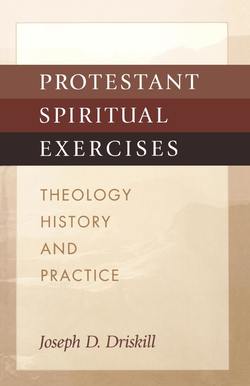Читать книгу Protestant Spiritual Exercises - Joseph D. Driskill - Страница 10
На сайте Литреса книга снята с продажи.
Critical Study
ОглавлениеMainline Protestant spirituality has been shaped by a commitment to critical reflection. As noted in this book's Introduction, since the Enlightenment mainline Protestants have been committed both to the worldviews of their surrounding cultures and to the truths of Christian faith. That is to say, as advances were made in science and in the understanding of the workings of the universe, many Christians in Protestant traditions sought to reconcile the truths of faith with the findings of science and the insights of philosophy.
In the sixteenth century Protestants challenged the Roman Catholic Church on matters of doctrine and authority; in the eighteenth century they challenged the worldview that supported the church of the later Middle Ages. The advent of the Enlightenment established a new standard of truth. No longer was the authority of the church a sufficient standard of truth. Inquiring Protestants adopted a sense of skepticism and doubt toward truths that appeared grounded solely on church traditions and religious authorities. Reason became the celebrated human faculty.
Although by the nineteenth century this commitment to reason did not eliminate a commitment to revelation, it firmly committed mainline Protestant traditions to scholarly inquiry. For Protestants, the question kept arising: How can God's truth be an aspect of both the world of nature and the Word of faith? The truths of faith, the revelation of God in Jesus, and the teachings of the church were submitted to the bar of reason. Biblical texts and historical traditions were subjected to the same scrutiny as so-called secular literary works such as The Iliad or a text attributed to Shakespeare.
The biblical scholarship of the late eighteenth and nineteenth centuries easily found its way into the Protestant religious scene of the United States. For example, when the works of German scholars of the Scriptures became known in the United States, mainline Protestant denominations ultimately embraced their analytical approach to the Bible. Harry Emerson Fosdick (1878–1969), minister of Riverside Church in New York City, was a well-known apologist for the scholarly approach to the biblical texts. Critical reflection not only on the biblical texts but also on church dogmas and traditions has been a hallmark of mainline Protestant religious life.
A recovery of the spiritual practices and disciplines advocated in this book does not compromise the mainline Protestant commitment to critical reflection. It does, however, challenge the notion that only analytical—in contrast to devotional—approaches to biblical texts and Christian classics have merit. Devotional practices do not displace critical aspects of faith development; rather, they develop the affective nature of the human capacity for relationship. In addition, devotional practices themselves are always subject to critical reflection; the dialectical process between devotion and critical reflection provides a more holistic approach to spiritual development than either alone.
